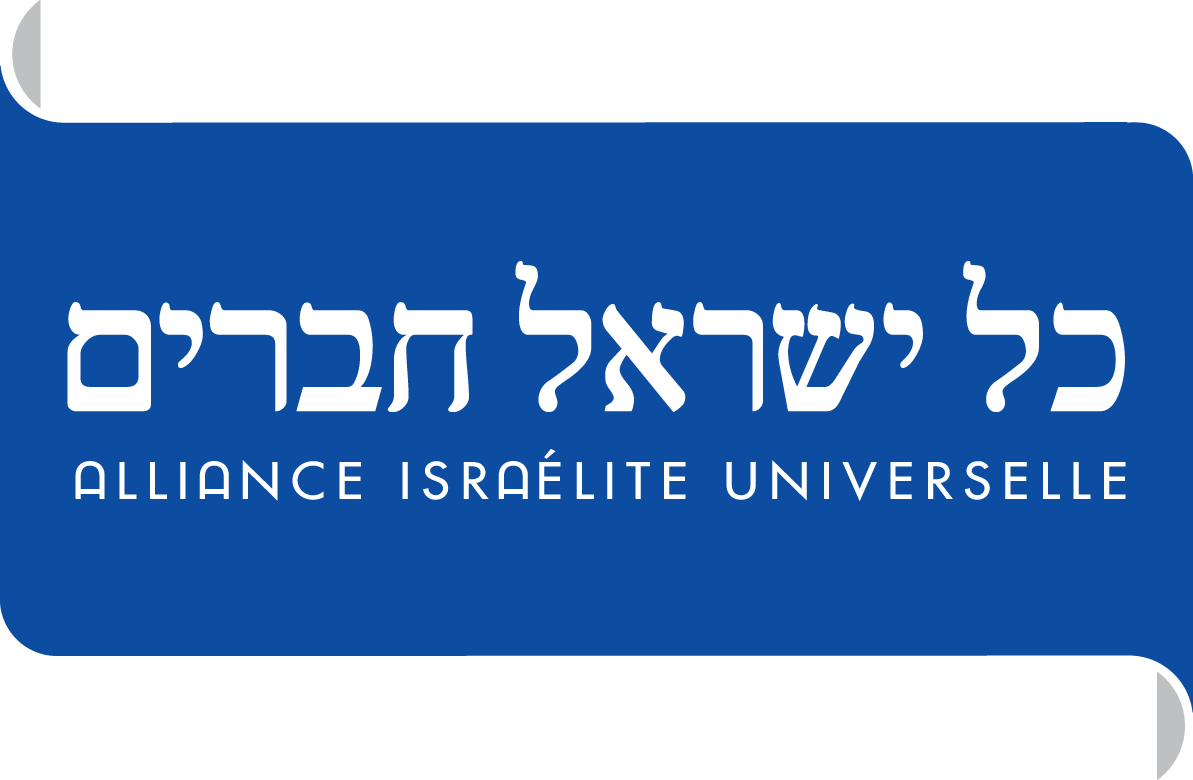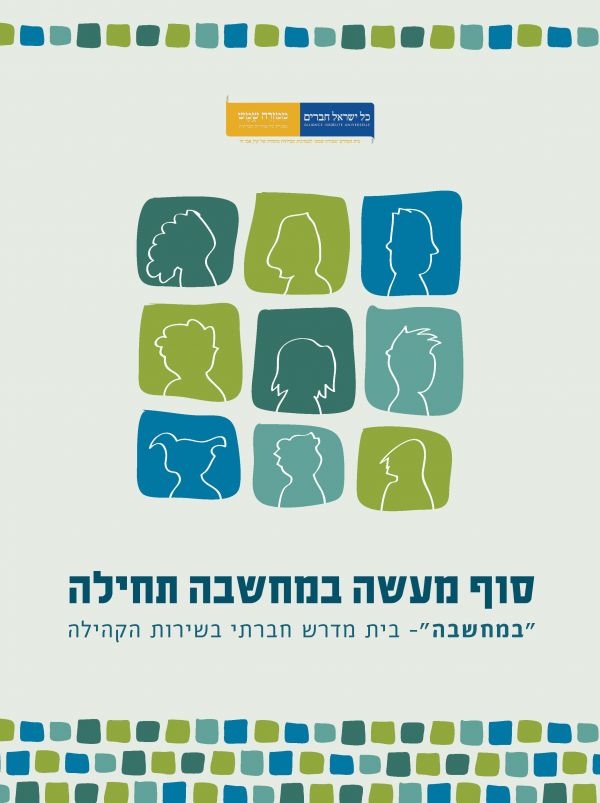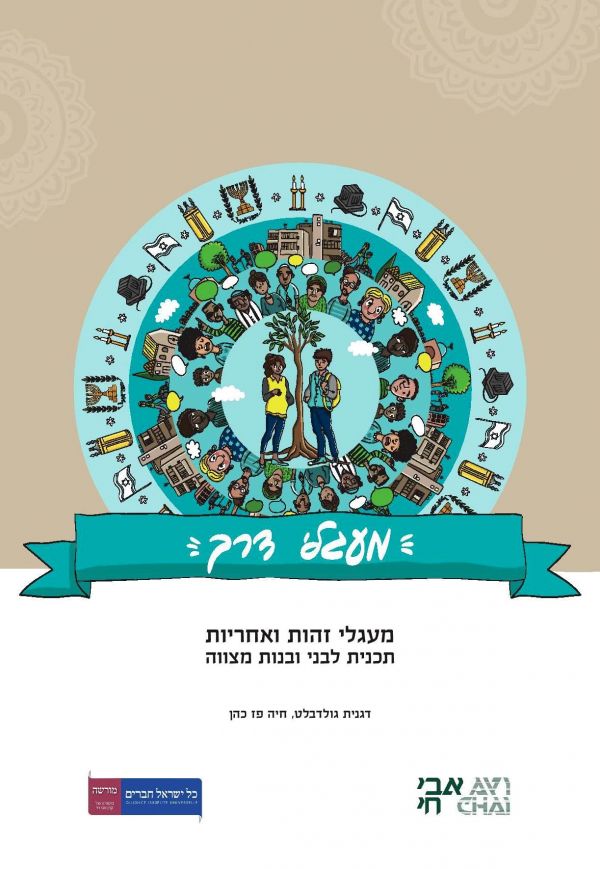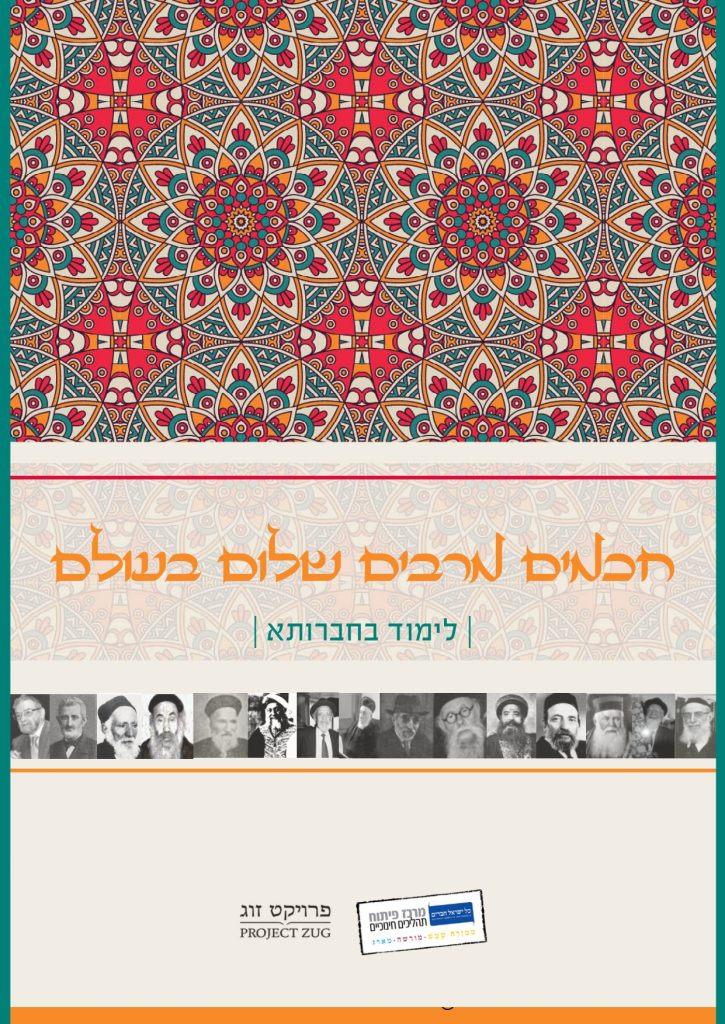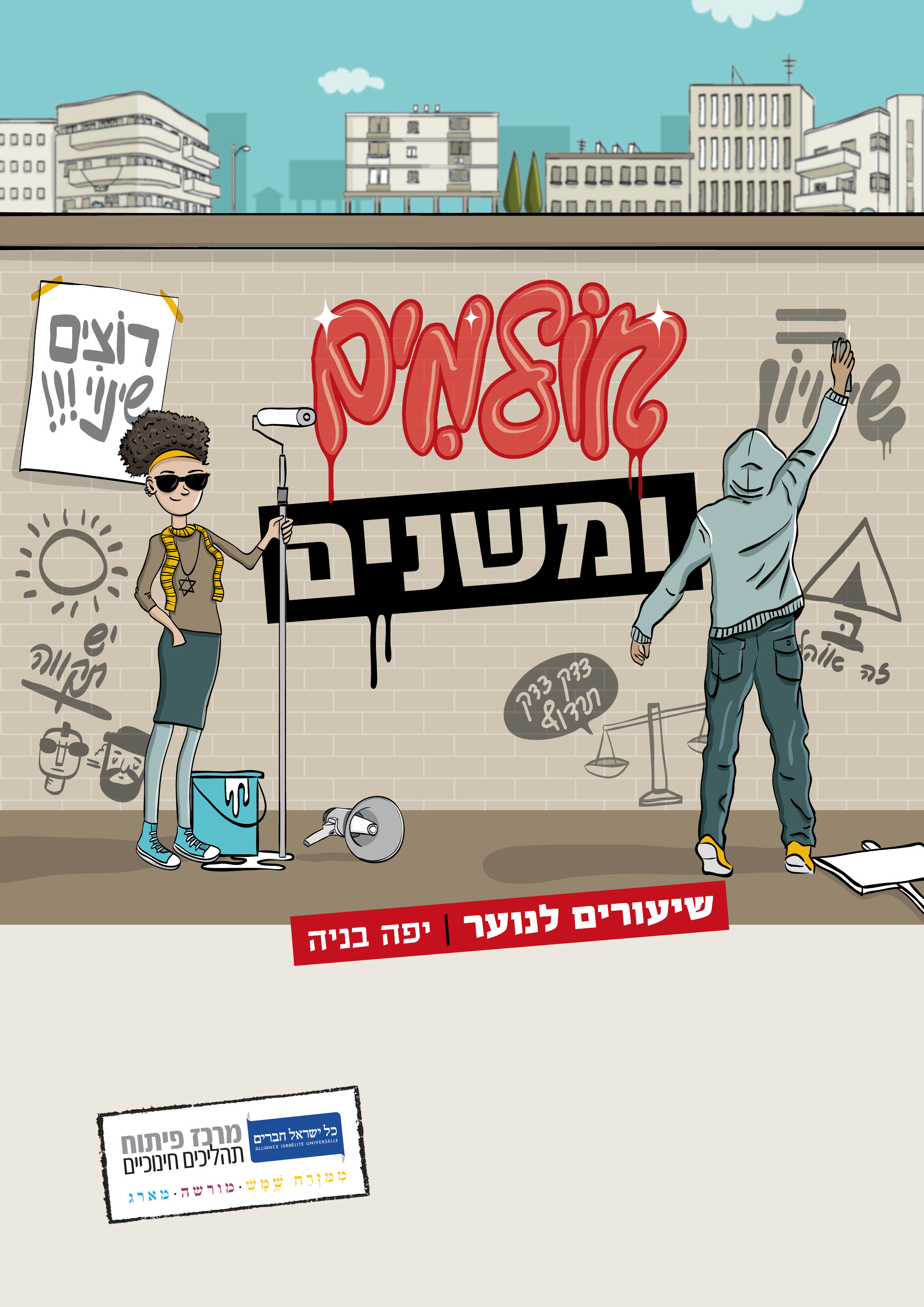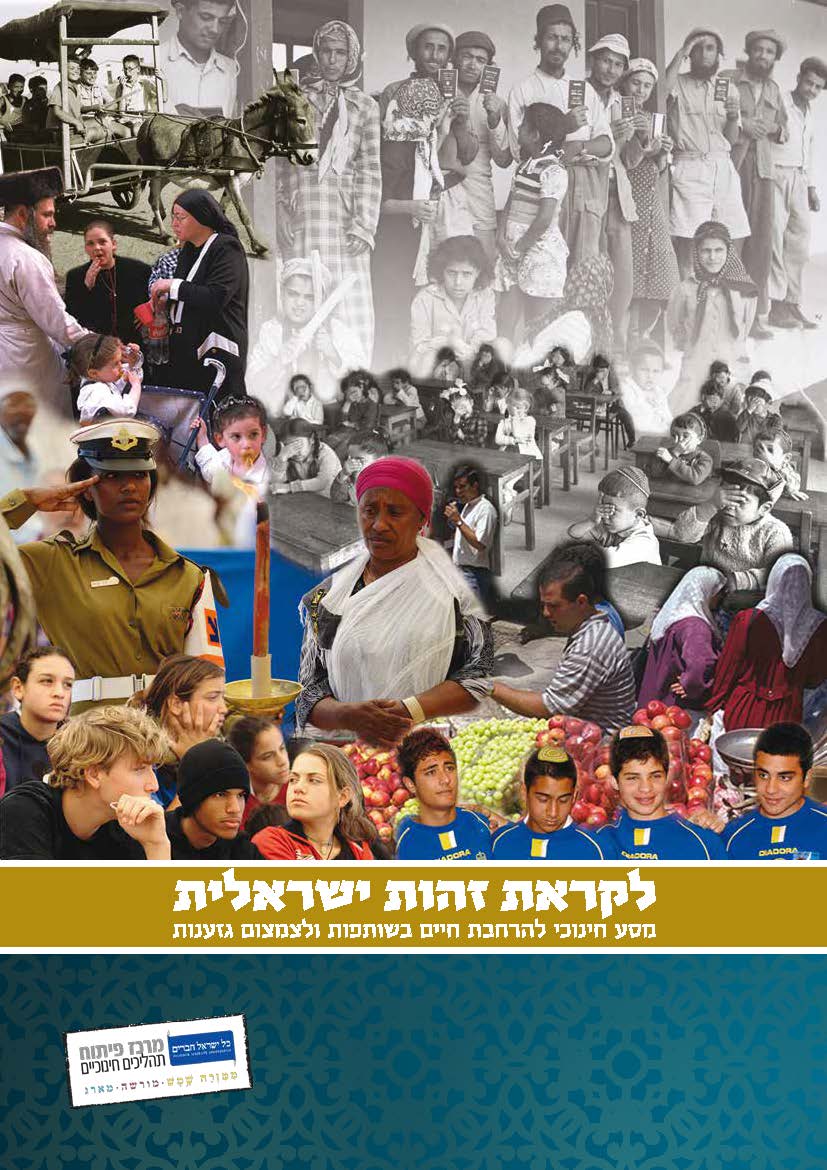Study programs
A social seminary serving the community
The brochure is intended for:
Upper secondary school, informal education, pre-military preparatory schools, seminaries
Often, volunteers, under the pressure of their work, do not find time to stop and reflect on the meaning of volunteering: on the connection between their actions and their personal, Jewish, and social identity, on the connection between their actions and the identity of the population in whose midst they work, and on the relationship between the specific cases they deal with during the year of service and the structural and systemic problems of Israeli society. The program is designed to create a significant personal and group process through the study of a selection of Jewish sources that deal with social issues, concerning the identity of the participants and the many challenges that arise during the year of service, while creating a common group language. Through the thought and emotion that the program reveals and arouses during the work, the work of the "Shashim" can deepen and create change with far-reaching consequences. The learning that occurs alongside the action creates an internal process - it strengthens the sense of belonging to the Jewish heritage; and it also drives an external and practical process - it changes the attitude towards the residents of the neighborhood and deepens the understanding of the residents' lifestyle, their values and the difficulties they face. The "Shashim" will have the opportunity to express their feelings and thoughts towards the social reality that surrounds them from within the world of Jewish concepts and ideas.
Circles of Identity and Responsibility - A program for Bani and Bani Mitzvahs
The brochure is intended for:
Elementary school, middle school, informal education, communities
The blessing "Blessed are we that we have been spared this one's punishment," which the father blesses during the Bar Mitzvah ceremony in the synagogue, represents in Jewish tradition the transfer of responsibility from the parent to the adult girl and boy. The combinations "Bat Mitzvah" and "Bar Mitzvah" signify for us a ceremony of transition from the world of childhood to the world of adulthood. In the Jewish world, the transition from childhood to adulthood means a personal commitment to Jewish tradition and adolescents' acceptance of responsibility for their actions. Although in modern society the age of acceptance of responsibility is later, the challenges of adulthood are already upon young people at the beginning of their second decade of life. 12-13 year olds begin to shape their relationship with themselves, their family, and the community around them. They make decisions regarding the continuation of their educational path, how they will spend their free time, and more. In the Bar Mitzvah program, we seek to mold Jewish-social content around the concept of "responsibility." We will examine the significance of the responsibility that stems from reaching the age of mitzvot, both in studying Jewish sources in an active way, in which students take responsibility for their learning process (Beit Midrash), and in social action within the family and among the community.
Studying in a community
The brochure is intended for:
Middle school, high school, informal education, pre-military preparatory schools, seminaries, communities
The course 'Sages Promote Peace in the World - Between Israel and the Nations' is an opportunity for learners to clarify their position on the treatment of non-Jews in the State of Israel, and to formulate an opinion that represents their Jewishness and their being Jewish. The course will introduce learners to the words of sages who deal with various issues at the center of this topic, such as: the appropriate treatment of other peoples; the rights of minorities; neighborly relations and human dignity. The rich Jewish tradition of Sephardic Jews and Jews of Islamic countries, and in particular the open and fruitful encounter of this tradition with modernity, imbue a moderate, inclusive Jewish identity that does not impose its values; a Judaism centered on social values - morality, ethics, humanity. Familiarity with this tradition allows learners to become familiar with Jewish responses to this phenomenon that are not always recognized as Jewish responses. The program includes ten sessions structured in three units of three sessions each and a concluding session, and is accompanied by three instructional videos.
Training program for instructors in youth clubs
The brochure is intended for:
Upper secondary school, informal education, pre-military preparatory schools, seminaries, communities
Youth in neighborhoods and communities characterized by a poor physical environment, frequent situations of violence, crime, the availability of psychoactive substances, and a lack of socio-educational resources are in a constant state of personal, economic, and social survival. The daily battle for survival makes it very difficult for them to live a life characterized by a school routine, membership in informal youth activities, participation in clubs, and recreation. Youth clubs of the mentor generation enable youth to move from survival to creation, development, and giving. Youth clubs of the mentor generation are built around a number of educational principles, one of the central of which is the figure of the mentor in the club. On the one hand, the mentors are required to be closely acquainted with the risky situations in which the boys and girls live and the difficulties they present, and on the other hand, to be able to identify personal abilities that exist in the personality of each boy and girl, similar to youth in other living environments, and to allow these abilities to be expressed.
Lessons for youth
The brochure is intended for:
Middle school, high school, informal education, seminaries
"The 'Dreamers and Changers' program is intended for teenagers in grades 9-10. It offers them the opportunity to dream and develop a social vision by strengthening their sense of capability, through a critical examination of reality. In addition, the program opens up ways for students to realize their dreams in the present and in the future. The lesson plans in this booklet combine three ways to instill in teenagers a belief in the ability to change and motivate them to take action: a connection to personal identity through identifying the sources of strength and weakness of the individual and the groups they belong to; a critical observation of the causes of social inequality; and an examination of ways to change and correct society. At the center of each lesson is a seminary study, the essence of which is dialogue, which combines the study of content with a discourse that gives space to personal dimensions and different identities of students, strengthens a connection to sources, and emphasizes the formation of a personal position towards the values and content they offer.
An educational journey to expand life in partnership and reduce racism
The brochure is intended for:
Upper secondary school, informal education, pre-military preparatory schools, communities
The ceremony of granting an identity card to tenth grade students is a national transition ceremony, indicating the receipt of Israeli citizenship, which grants an entry ticket to participate in the civic life of the State of Israel, its duties and rights. Legally, receiving an identity card is automatic, but in a substantive sense, receiving an identity card symbolizes the acceptance of the civic values of the State of Israel as a Jewish and democratic state. Despite this, we are witnessing an increase in manifestations of racism, violence and intolerance among youth, which contradict the values of the state. These phenomena are directly related to stereotypical identification with the other, and to the lack of legitimacy of diversity.
